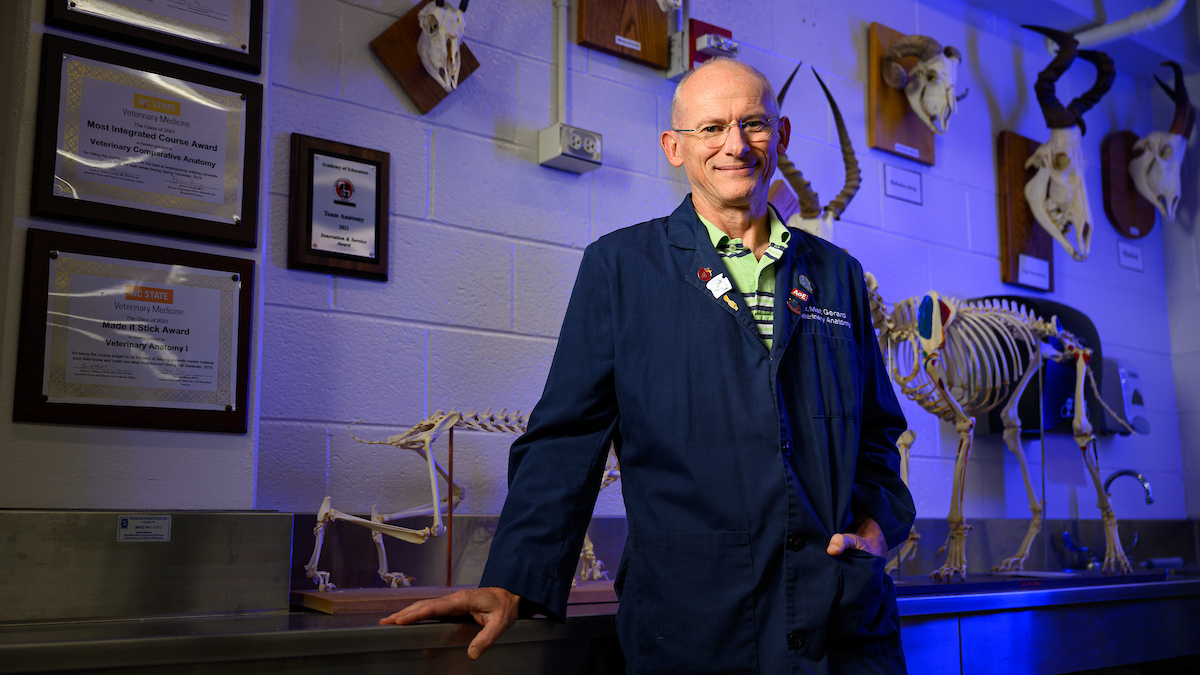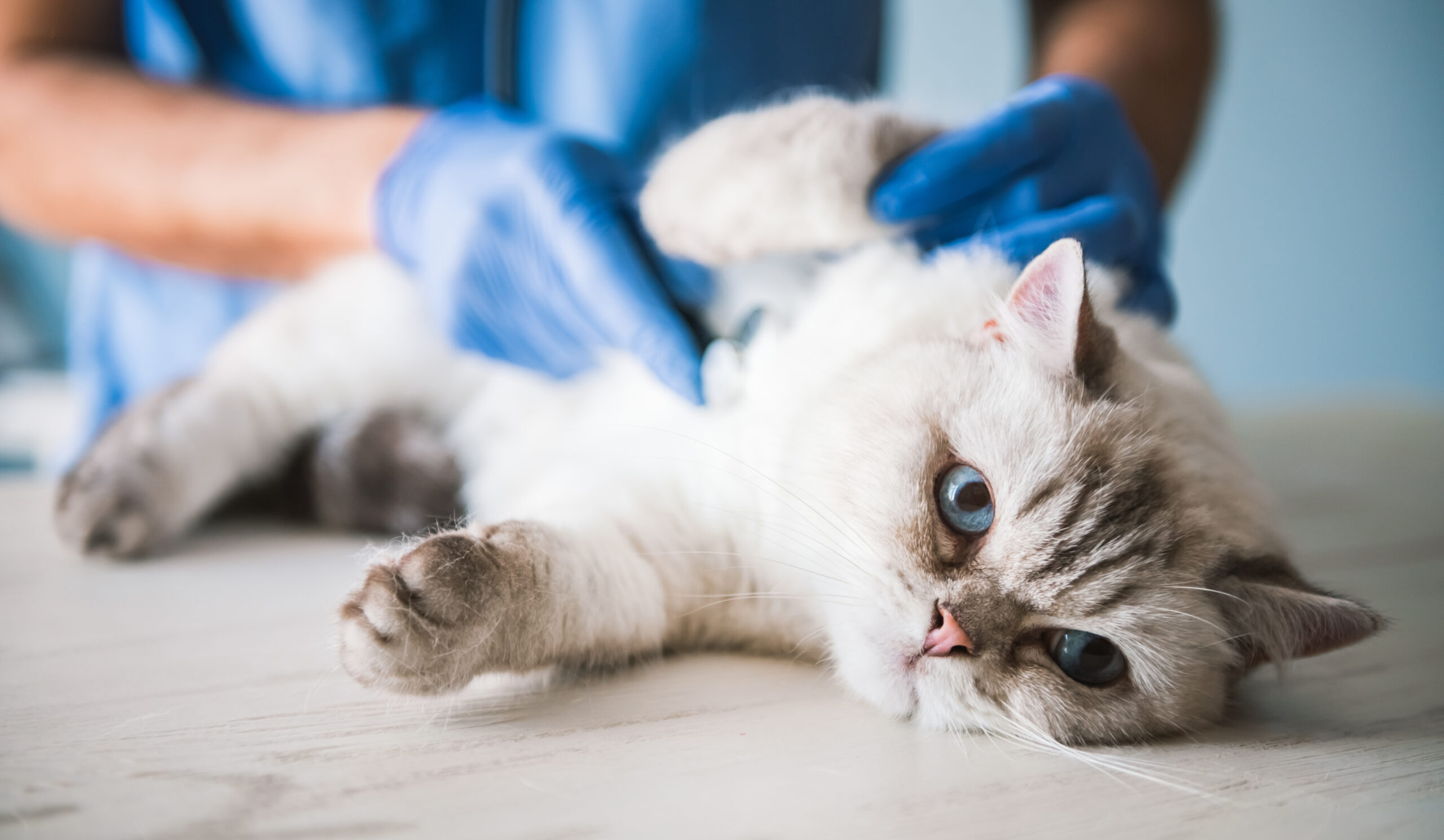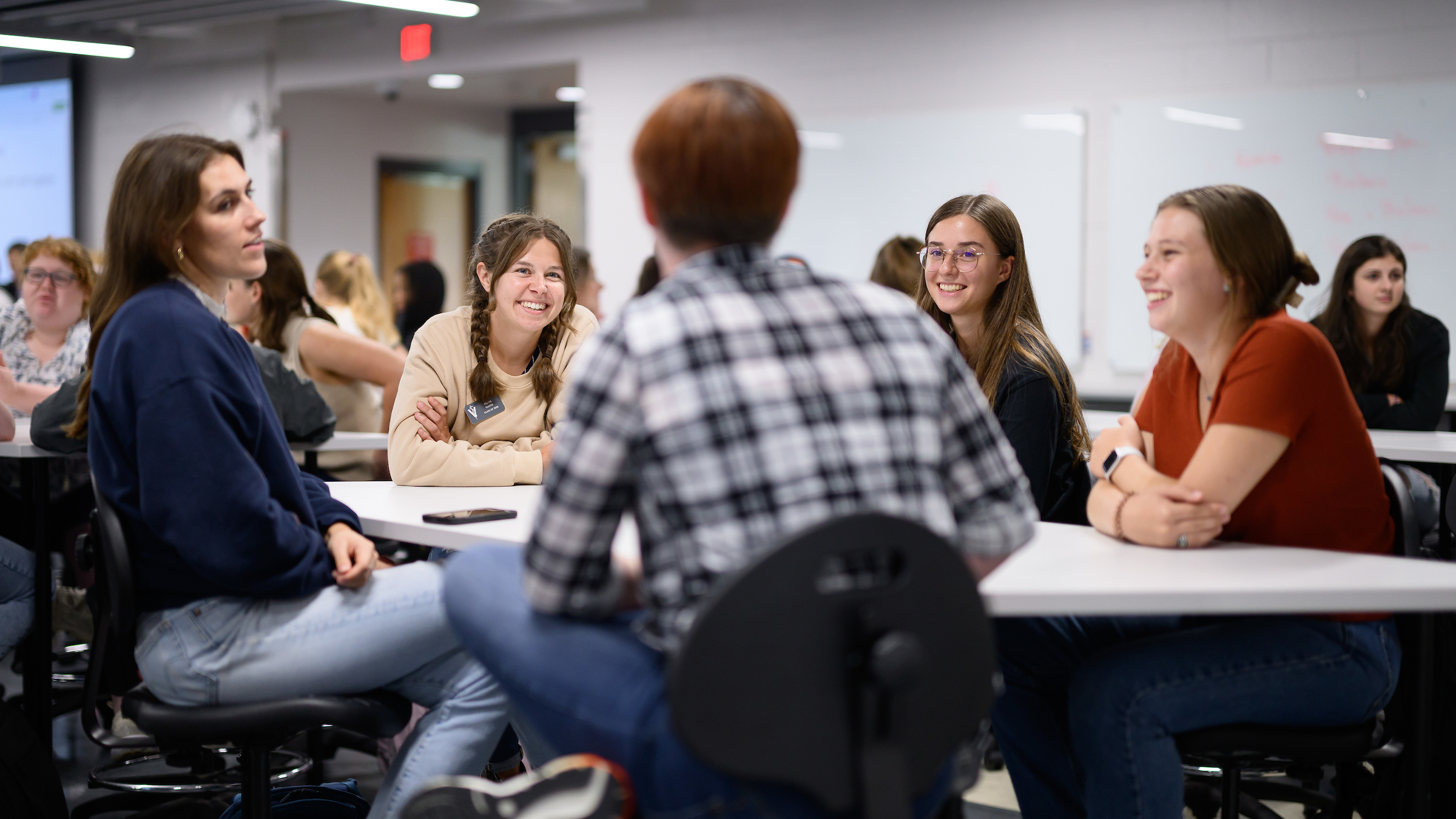As COVID-19 Rages, CVM Student Readies for Disease Research Abroad
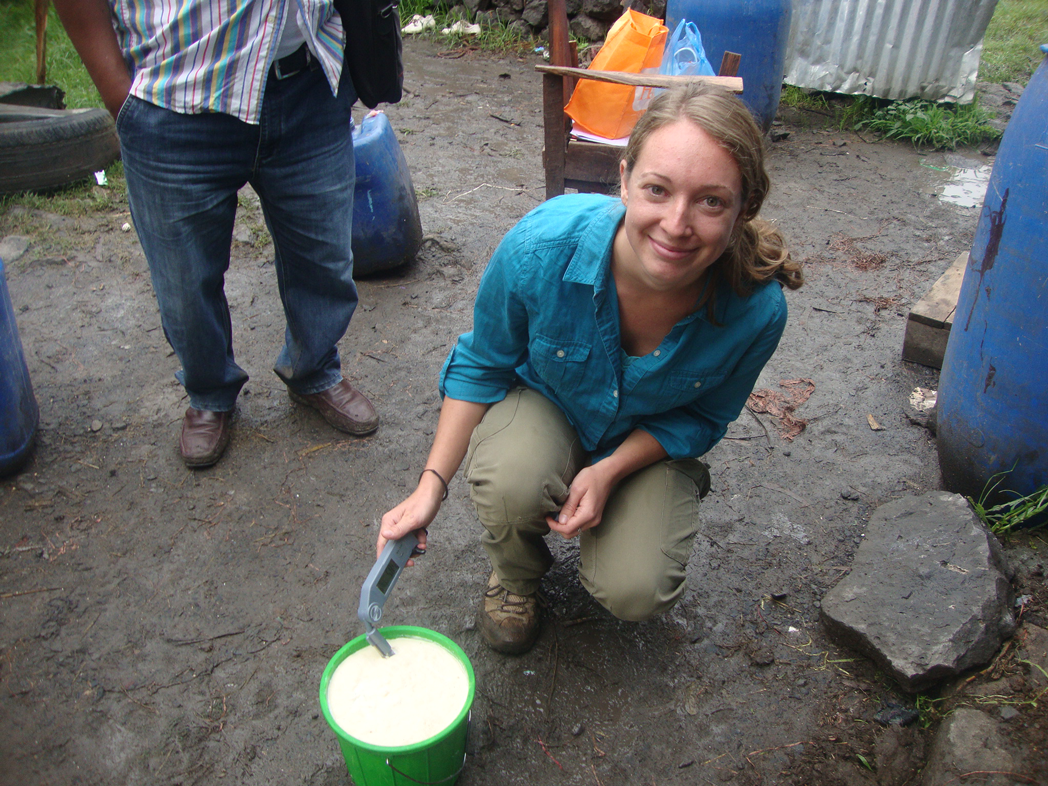
When Keli Gerken first entered the NC State College of Veterinary Medicine, she didn’t know much about the role veterinarians play in addressing global health challenges.
That changed quickly — and so has her career path. As she nears graduation with the Class of 2020, Gerken’s also preparing to spend a year in Kenya as part of the prestigious Global Health Equity Scholars Program.
For her fellowship, based out of Stanford University and scheduled to start in September, Gerken will join a research team investigating the behavior of the Rift Valley fever virus, an infectious disease impacting animals and humans. It is most commonly seen in sub-Saharan Africa, but during the past 20 years has been detected in the Arabian peninsula.
Gerken will be the first doctor of veterinary medicine the research team has worked with full time on the project, and she is prepared for her mission. She has studied pathogens and human behavior related to dairy animal source foods in Ethiopia while earning a certificate in global health from the CVM under the mentorship of Andy Stringer, director of global health education.
“As we are seeing now with the coronavirus pandemic, infectious diseases do not distinguish country borders,” said Gerken. “I am also deeply passionate about global health equity. In order to have fairness in health, we must understand that marginalized communities may need more focus sometimes.”
Gerken talked to us about pursuing a career in global health epidemiology, veterinary medicine’s role in global health and more.
What was your reaction to being accepted into the fellowship program?
It was overwhelming. You know, it’s that moment when everything you’ve been working towards falls into place.
Why were you interested in the program?
Since I started veterinary school, I knew I wanted to work in global public health. This fellowship program was a perfect fit for me — a full year of mentored research and being able to live at the field site. It has always been important to me that my career starts with a boots-on-the-ground experience. During previous research in Ethiopia, I felt connected to this region and recognized more and more that there was a significant burden of disease. I saw the way poor farmers talked about their animals with such pride and I listened to their concerns about disease.
I decided early on that I wanted to use my veterinary degree to contribute to work that improves peoples’ livelihoods through livestock and mitigates their risk for infectious diseases.
How has your time at the CVM prepared you for this fellowship and fostered your interest in global health?
None of this would have been possible without Dr. Stringer giving me an opportunity to work with his research group in Ethiopia. I had traveled before, but when I was a first-year student I didn’t know much about working in global health; the global health certificate was new at that time. I followed that excitement and started learning more about the philosophies of global health through additional classes for the certificate, started reading global health journals and attending seminars.
I traveled to East Africa over every summer break and even a winter break to see what I was learning about firsthand. The CVM provided several scholarships to support my travel, and Dr. Stringer always had new ideas for projects I could continue to work on.
What is it about your fellowship’s research project that particularly interests you?
The project explores the specific risks of animal exposure for Rift Valley fever virus exposure and acute infections in humans in Kenya. Rift Valley fever is a zoonotic disease with high mortality in ruminants and can cause hemorrhagic syndromes in humans. Kenya is one of the countries that has had consistent outbreaks of RVF and has a documented endemic cycle of disease, so it is a prime location to study disease dynamics.
In previous studies, animal exposure was linked to more severe forms of disease. I want to really dive deeper into what specific animal exposures contribute to risk. There is evidence for a hidden burden of disease in my study areas. Understanding this is important for those individuals living in these endemic areas who rely on animals to support their family, but also important for policy makers in the United States to develop plans for containment if the virus were to ever come here.
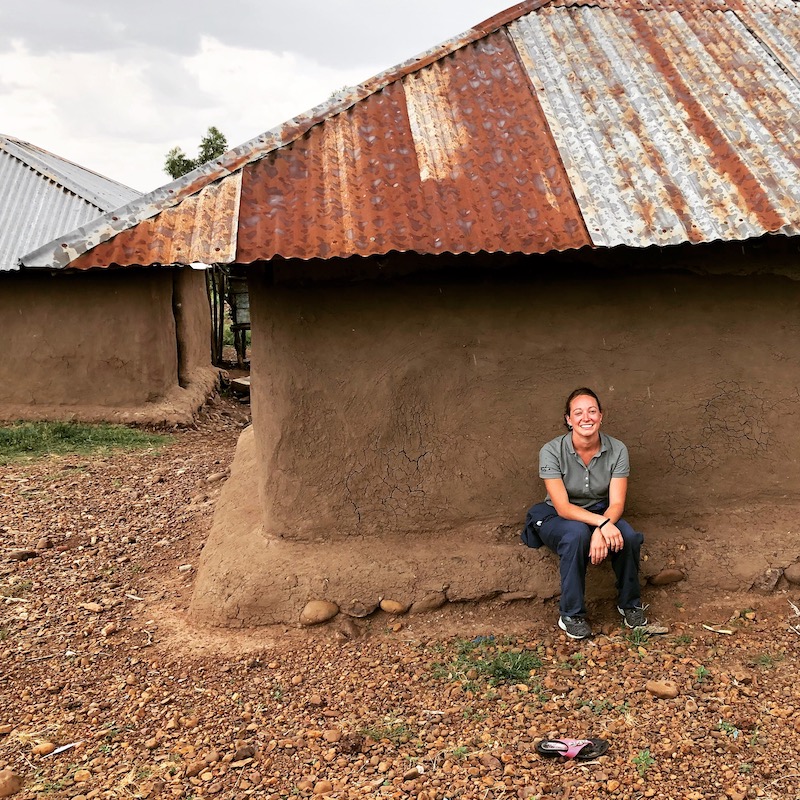
What does it feel like to be the first veterinarian to work full time on the team?
The research group I will be working with makes this project very cool. Dr. Desiree LaBeaud is a medical doctor at Stanford University and leads an epidemiology research group. She has worked in Kenya for more than a decade and is a recognized expert in RVF.
I first reached out to her when I was a third-year student, and I must admit I was a little nervous that she would ask why I wasn’t a human medical student. I explained my interests and her reply was, “This is great. Let’s do it!” We recognize that this project is the very essence of One Health: physicians and veterinarians coming together to share ideas for better health for people, animals and our environment.
That collaboration seems vital to your project’s mission. What can medical doctors learn from DVMs and DVMs learn from MDs when researching and combating global viruses?
I think it comes down to how you look at grand challenges. Most problems facing the world have many different factors to consider and your background and experiences shape how you want to tackle problems. I don’t think of it necessarily as lessons to be learned from each other; I think of it more as perspectives to be shared. For the veterinary side, we think a lot about how individuals are susceptible to a disease within their given environment. Physicians do the same but with a focus on humans. It just comes down to being able to listen to each other’s ideas with an open mind.
How would you describe the general role veterinarians play in addressing global health challenges?
For veterinarians, I think the possibilities are endless. Our training uniquely qualifies us to work in public health because this idea of herd health is ingrained in us. The idea that the health of one individual, be it animal or human, affects the health of all individuals. I would say to veterinarians interested in a career in global health, don’t be afraid to work with other professionals. Our ideas are valued and can be incorporated into many different arenas in global health.
As someone who is about to earn a DVM and pursue a career in global health epidemiology, what has watching the novel coronavirus pandemic unfold been like for you?
In a way, it is not surprising. We always talk about how globalization contributes to the spread of infectious disease and here it is happening around us. I always appreciated this concept, but it’s certainly different when you experience it. We are living through a historical pandemic, so I hope we will look back on this and learn the gaps we have in our healthcare and public health systems.
This time period is filled with uncertainty, especially now being on the edge of graduation. One thing I’m absolutely sure of is that epidemiological data has the power to save peoples’ lives. I can’t wait to get out there and start contributing.
~Jordan Bartel/NC State Veterinary Medicine
- Categories:
